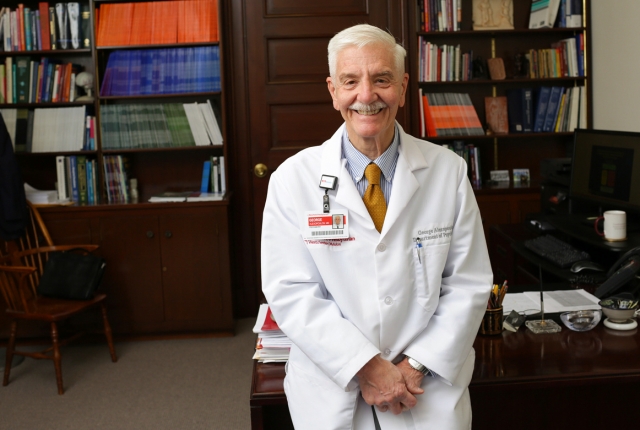
Weill Cornell Medicine has been awarded a $4 million, four-year grant from the National Institute of Mental Health of the National Institutes of Health to support a new research center dedicated to developing and studying improved treatments for middle-age and older adults suffering from depression.
The Weill Cornell Advanced Laboratory for Accelerating the Reach and Impact of Treatments for Mid- and Late-Life Depression (ALACRITY) Research Center will study a new model for developing behavioral interventions to improve the care of older and middle-aged adults with mood disorders treated in the community. The center’s interventions have been developed based on input by consumers and community clinicians, are guided by scientific findings illuminating the biological basis of depression in the brain, and supported by mobile technology.
To maximize their effect, the center’s interventions have been designed, tested and adapted in community settings where middle-aged and older adults receive care and services. These settings include primary care clinics and those that serve patients with special needs, such as agencies treating victims of elder abuse and the economically disadvantaged. The research team will train non-physician, healthcare professionals in these settings to deliver interventions, which seek to help patients identify and change troubling emotions, thoughts and behavior, a technique called psychotherapy.
“We want to make good psychotherapy available to the community to be used across the country,” said principal investigator Dr. George Alexopoulos, director of the Weill Cornell Institute of Geriatric Psychiatry, the Stephen P. Tobin and Dr. Arnold M. Cooper Professor in Consultation Liaison Psychiatry and a professor of psychiatry at Weill Cornell Medicine, and a psychiatrist at NewYork-Presbyterian/Westchester Division. “This grant will help validate our method, which will have broad implications for mental health and improve public health.”
Mood disorders, particularly among mid-life and older adults, are a leading cause of disability, which increase medical morbidity and mortality, cause suffering, and increase the cost of care. Anti-depressants and other medications address the needs of no more than half of those affected by depression, and most non-pharmacological therapies are complex and have limited scalability and reach. With incidence of mood disorders expected to rise as the U.S. population ages, research into these conditions is an important national priority, Dr. Alexopoulos said.
Rather than focusing exclusively on improving the use of existing psychotherapies, the Weill Cornell ALACRITY team will work to both simplify the therapies themselves and to improve their delivery.
Using the rapidly developing knowledge on the brain biology of depression and their own biological findings, the investigators proposed that dysfunction of the brain’s reward networks promotes the development of depression. Based on this view, they designed psychotherapies consisting of simple techniques to expose depressed patients to rewarding experiences. However, some depressed patients have additional brain network dysfunctions, leading to behaviors that prevent them from pursuing and benefiting from rewarding experiences. Dr. Alexopoulos’ team has developed additional techniques that can help them overcome those challenges.
“Repeated use of the reward networks can strengthen their function in a similar way that repeated exercise strengthens the body’s muscles” Dr. Alexopoulos said.
Now, armed with the grant, Dr. Alexopoulos and his team will test those interventions on patients in the community in three randomized, double-blind clinical trials, each with 40 patients in the experimental group and 20 in the control.
To ensure that the interventions would be meaningful to patients, the investigators will take into consideration how the patients’ personal situations influence their views and their behavior. In addition to in-person meetings with therapists, the psychotherapies include smartphone apps that provide motivational messages prepared by the therapists that remind patients to pursue their treatment assignments, and to rate various aspects of their mood and behavior. The technology will also passively monitor some of the patients’ activities and sleep patterns. The apps were developed by Cornell University Professor Dr. Tanzeem Choudhury, who is the founder and CEO of HealthRhythms. HealthRhythms is licensing the smartphone apps to Cornell for their use and testing in this grant. Dr. Choudhury is also a sub-investigator on the grant.
If successful, investigators hope that their psychotherapies can become part of the practice of therapists working in community settings, and can help patients who are affected by other mental health conditions.
“There are many other behavioral illnesses that can be approached with the same technique,” Dr. Alexopoulos said. “So validating our method would be a critical step that might increase the public health impact of psychotherapy as it never has before.”
The ALACRITY grant is supported by the National Institute of Mental Health of the National Institutes of Health under Award Number P50 MH113838-01. The content of this press release is solely the responsibility of the authors and does not necessarily represent the official views of the National Institutes of Health.
